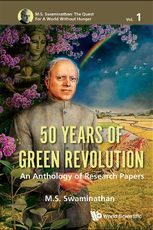
50 Years of Green Revolution: An Anthology of Research Papers
Green Revolution, Evergreen Revolution, Sustainable Agriculture, National Food Security
Authors : Swaminathan M S (M S Swaminathan Research Foundation, India)
Publisher : World Scientific
ISBN : 978-981-3200-06-7
There are currently no reviews for this book title.
The green revolution in India about 50 years ago transformed India's image then as begging bowl to bread basket. This transformation during the 1960s took just about 4 years. The yield increases achieved in wheat and then in rice which occurred in just about half decade is far in excess of the yield increases during the preceding 4000 years. This remarkable feat was achieved with the leadership of the author using the dwarf wheat types which had been produced by Norman Borlaug in Mexico.
The research and development of green revolution of wheat and rice at the Indian Agricultural Research Institute, New Delhi was led by the author along with his team of students and co-workers. He has published over 100 papers on green revolution and the ever-green revolution which is a refinement of the former. This book is a compilation of just about 40 of his numerous research papers, monographs and books published by him on this subject.
The papers in this book bring out the scientific basis of the modification of the plant type so as to be responsive to exogenous addition of chemical fertilizers and irrigation. The ideal plant type enables capture of adequate sunlight and using the chemical fertilizers added to the soil, produce substantial photosynthetic starch. And because the plants have short and thick culm, they are able to withstand enormous amounts of grains in their ears. This indeed was the basis of breaking the yield barriers associated with native varieties. The book also brings out that green revolution had established the food security at the national level but not at the individual household levels of millions of resource-poor rural small and marginal farming, fishing and landless families. Further green revolution was commodity-centric and the manner of its practice led to environmental degradation and social inequities. This author realized as early as 1972 that system of agriculture in India should be designed to fight both the famines of food and rural livelihoods. In pursuit of it, this author further designed an evergreen revolution with systems approach. What this means is providing concurrent attention to ecological foundations of agriculture and the livelihoods of the rural people.
The book also brings out that green revolution was a team effort involving scientists, policy makers, administrators, farmers and students.
This book is an outstanding example of green revolution providing a breathing space by putting the cereal grain production rate ahead of the population growth rate and then when food security has been adequately established, the system is changed to achieve productivity in perpetuity without causing environmental and social harm.
The research and development of green revolution of wheat and rice at the Indian Agricultural Research Institute, New Delhi was led by the author along with his team of students and co-workers. He has published over 100 papers on green revolution and the ever-green revolution which is a refinement of the former. This book is a compilation of just about 40 of his numerous research papers, monographs and books published by him on this subject.
The papers in this book bring out the scientific basis of the modification of the plant type so as to be responsive to exogenous addition of chemical fertilizers and irrigation. The ideal plant type enables capture of adequate sunlight and using the chemical fertilizers added to the soil, produce substantial photosynthetic starch. And because the plants have short and thick culm, they are able to withstand enormous amounts of grains in their ears. This indeed was the basis of breaking the yield barriers associated with native varieties. The book also brings out that green revolution had established the food security at the national level but not at the individual household levels of millions of resource-poor rural small and marginal farming, fishing and landless families. Further green revolution was commodity-centric and the manner of its practice led to environmental degradation and social inequities. This author realized as early as 1972 that system of agriculture in India should be designed to fight both the famines of food and rural livelihoods. In pursuit of it, this author further designed an evergreen revolution with systems approach. What this means is providing concurrent attention to ecological foundations of agriculture and the livelihoods of the rural people.
The book also brings out that green revolution was a team effort involving scientists, policy makers, administrators, farmers and students.
This book is an outstanding example of green revolution providing a breathing space by putting the cereal grain production rate ahead of the population growth rate and then when food security has been adequately established, the system is changed to achieve productivity in perpetuity without causing environmental and social harm.
Professor M. S. Swaminathan has been acclaimed by the TIME magazine as one of the twenty most influential Asians of the 20th century and one of the only three from India, the other two being Mahatma Gandhi and Rabindranath Tagore. He has been described by the United Nations Environment Programme as "the Father of Economic Ecology" because of his leadership of the ever-green revolution movement in agriculture and by Javier Perez de Cuellar, Secretary General of the United Nations, as "a living legend who will go into the annals of history as a world scientist of rare distinction". He was Chairman of the UN Science Advisory Committee set up in 1980 to take follow-up action on the Vienna Plan of Action. He has also served as Independent Chairman of the FAO Council (1981–1985) and President of the International Union for the Conservation of Nature and Natural Resources (1984–1990). He was President of the World Wide Fund for Nature (India) from 1989-96. He also served as President of the Pugwash Conferences on Science and World Affairs (2002–2007), President of the National Academy of Agricultural Sciences (1991–1996 and 2005–2007) and Chairman, National Commission on Farmers (2004–2006). He was a trustee of Bibliotheca Alexandrina in its formative years.
He served as Director of the Indian Agricultural Research Institute (1961–1972), Director General of Indian Council of Agricultural Research and Secretary to the Government of India, Department of Agricultural Research and Education (1972–1979), Principal Secretary, Ministry of Agriculture (1979–1980), Acting Deputy Chairman and later Member (Science and Agriculture), Planning Commission (1980–1982) and Director General, International Rice Research Institute, the Philippines (1982–1988).
A plant geneticist by training, Professor Swaminathan's contributions to the agricultural renaissance of India have led to his being widely referred to as the scientific leader of the green revolution movement. His advocacy of sustainable agriculture leading to an ever-green revolution makes him an acknowledged world leader in the field of sustainable food security. The International Association of Women and Development conferred on him the first international award for significant contributions to promoting the knowledge, skill, and technological empowerment of women in agriculture and for his pioneering role in mainstreaming gender considerations in agriculture and rural development. Professor Swaminathan was awarded the Ramon Magsaysay Award for Community Leadership in 1971, the Albert Einstein World Science Award in 1986, the first World Food Prize in 1987, and Volvo, Tyler and UNEP Sasakawa Prize for Environment, the Indira Gandhi Prize for Peace, Disarmament and Development in 2000 and the Franklin D Roosevelt Four Freedoms Medal, the Mahatma Gandhi Prize of UNESCO in 2000 and the Lal Bahadur Sastri National Award (2007). He is the recipient of Padma Shri (1967), Padma Bhushan (1972) and Padma Vibushan (1989).
Professor Swaminathan is a Fellow of many of the leading scientific academies of India and the world, including the Royal Society of London and the U S National Academy of Sciences. He has received 78 honorary doctorate degrees from universities around the world. He currently holds the UNESCO Chair in Ecotechnology at the M S Swaminathan Research Foundation in Chennai (Madras), India. He was a Member of the Parliament of India (Rajya Sabha), during 2007-13. During 2010–2013, he chaired the High Level Panel of Experts (HLPE) for the World Committee on Food Security (CFS). He also Chairs the Task Force set up by the Ministry of External Affairs to oversee the projects undertaken in Afghanistan and Myanmar in the field of agriculture.
During 2013, Prof Swaminathan received the Indira Gandhi Award for National Integration and Greatest Global Living Legend Award of NDTV. He was also elected at the 20th International Congress of Nutrition held at Granada, Spain, "as Living Legend of International Union of Nutrition Sciences". He received the Life Time Achievement Award at the 9th Nutra Summit in Bangalore.
He served as Director of the Indian Agricultural Research Institute (1961–1972), Director General of Indian Council of Agricultural Research and Secretary to the Government of India, Department of Agricultural Research and Education (1972–1979), Principal Secretary, Ministry of Agriculture (1979–1980), Acting Deputy Chairman and later Member (Science and Agriculture), Planning Commission (1980–1982) and Director General, International Rice Research Institute, the Philippines (1982–1988).
A plant geneticist by training, Professor Swaminathan's contributions to the agricultural renaissance of India have led to his being widely referred to as the scientific leader of the green revolution movement. His advocacy of sustainable agriculture leading to an ever-green revolution makes him an acknowledged world leader in the field of sustainable food security. The International Association of Women and Development conferred on him the first international award for significant contributions to promoting the knowledge, skill, and technological empowerment of women in agriculture and for his pioneering role in mainstreaming gender considerations in agriculture and rural development. Professor Swaminathan was awarded the Ramon Magsaysay Award for Community Leadership in 1971, the Albert Einstein World Science Award in 1986, the first World Food Prize in 1987, and Volvo, Tyler and UNEP Sasakawa Prize for Environment, the Indira Gandhi Prize for Peace, Disarmament and Development in 2000 and the Franklin D Roosevelt Four Freedoms Medal, the Mahatma Gandhi Prize of UNESCO in 2000 and the Lal Bahadur Sastri National Award (2007). He is the recipient of Padma Shri (1967), Padma Bhushan (1972) and Padma Vibushan (1989).
Professor Swaminathan is a Fellow of many of the leading scientific academies of India and the world, including the Royal Society of London and the U S National Academy of Sciences. He has received 78 honorary doctorate degrees from universities around the world. He currently holds the UNESCO Chair in Ecotechnology at the M S Swaminathan Research Foundation in Chennai (Madras), India. He was a Member of the Parliament of India (Rajya Sabha), during 2007-13. During 2010–2013, he chaired the High Level Panel of Experts (HLPE) for the World Committee on Food Security (CFS). He also Chairs the Task Force set up by the Ministry of External Affairs to oversee the projects undertaken in Afghanistan and Myanmar in the field of agriculture.
During 2013, Prof Swaminathan received the Indira Gandhi Award for National Integration and Greatest Global Living Legend Award of NDTV. He was also elected at the 20th International Congress of Nutrition held at Granada, Spain, "as Living Legend of International Union of Nutrition Sciences". He received the Life Time Achievement Award at the 9th Nutra Summit in Bangalore.
There are currently no reviews for this book title.
Buy this book, http://www.worldscientific.com/worldscibooks/10.1142/10279, 9655, false
FAQs
Click on the "Buy this book" button
You can email us at book-review@enago.com and we will get back to you with the next steps shortly.
New Releases
-

Advances in the Molecular Understanding of Colorectal Cancer
-
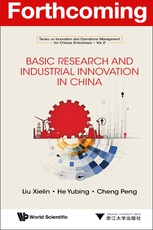
Basic Research and Industrial Innovation in China
-
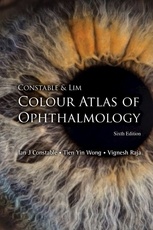
Constable & Lim Colour Atlas Of Ophthalmology: Sixth Edition
-
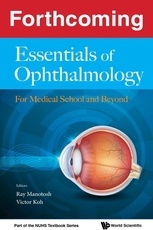
Essentials of Ophthalmology: For Medical School and Beyond
-
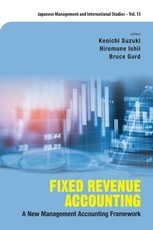
Fixed Revenue Accounting: A New Management Accounting Framework
All featured publishers and authors can avail of a free promotional interview on Enago Academy! Write to us now!
